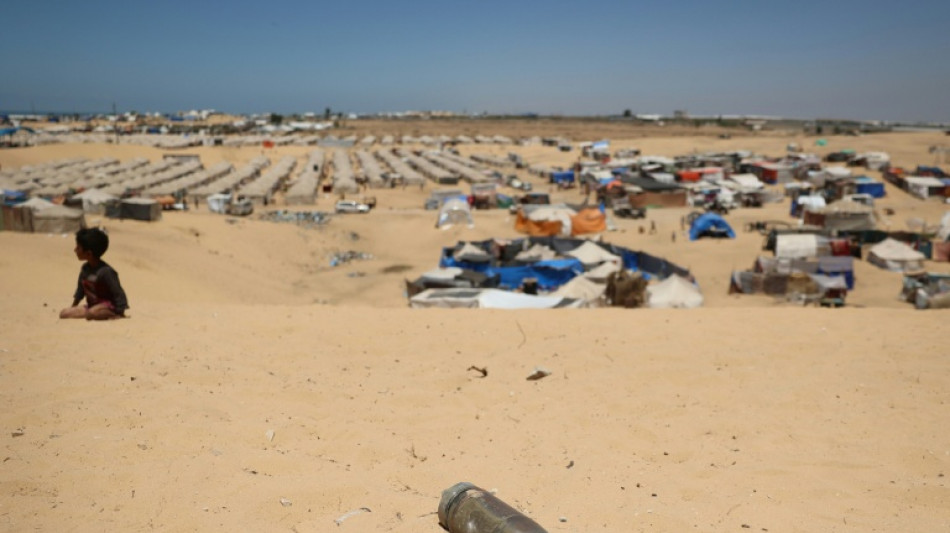
-
 Trump hails Putin summit but no specifics on Ukraine
Trump hails Putin summit but no specifics on Ukraine
-
Trump, Putin wrap up high-stakes Ukraine talks

-
 El Salvador extends detention of suspected gang members
El Salvador extends detention of suspected gang members
-
Scotland's MacIntyre fires 64 to stay atop BMW Championship

-
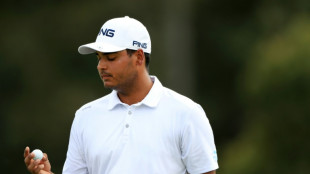 Colombia's Munoz fires 59 to grab LIV Golf Indy lead
Colombia's Munoz fires 59 to grab LIV Golf Indy lead
-
Alcaraz survives Rublev to reach Cincy semis as Rybakina topples No. 1 Sabalenka

-
 Trump offers warm welcome to Putin at high-stakes summit
Trump offers warm welcome to Putin at high-stakes summit
-
Semenyo racist abuse at Liverpool shocks Bournemouth captain Smith

-
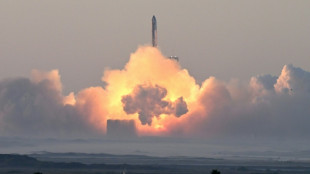 After repeated explosions, new test for Musk's megarocket
After repeated explosions, new test for Musk's megarocket
-
Liverpool strike late to beat Bournemouth as Jota remembered in Premier League opener

-
 Messi expected to return for Miami against Galaxy
Messi expected to return for Miami against Galaxy
-
Made-for-TV pageantry as Trump brings Putin in from cold
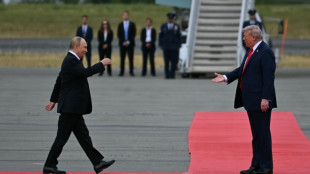
-
 Coman bids farewell to Bayern before move to Saudi side Al Nassr
Coman bids farewell to Bayern before move to Saudi side Al Nassr
-
Vietnamese rice grower helps tackle Cuba's food shortage

-
 Trump, Putin shake hands at start of Alaska summit
Trump, Putin shake hands at start of Alaska summit
-
Coman bids farewell to Bayern ahead of Saudi transfer

-
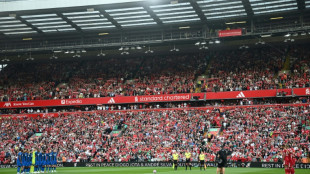 Liverpool honour Jota in emotional Premier League curtain-raiser
Liverpool honour Jota in emotional Premier League curtain-raiser
-
Portugal wildfires claim first victim, as Spain on wildfire alert
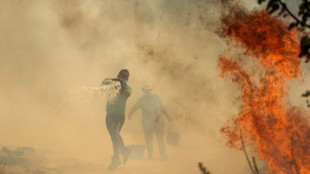
-
 Davos founder Schwab cleared of misconduct by WEF probe
Davos founder Schwab cleared of misconduct by WEF probe
-
Rybakina rips No.1 Sabalenka to book Cincinnati semi with Swiatek

-
 Trump lands in Alaska for summit with Putin
Trump lands in Alaska for summit with Putin
-
Falsehoods swirl around Trump-Putin summit

-
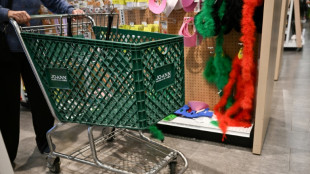 US retail sales rise amid limited consumer tariff hit so far
US retail sales rise amid limited consumer tariff hit so far
-
Liverpool sign Parma teenager Leoni

-
 Canadian football teams will hit the road for 2026 World Cup
Canadian football teams will hit the road for 2026 World Cup
-
Bethell to become England's youngest cricket captain against Ireland
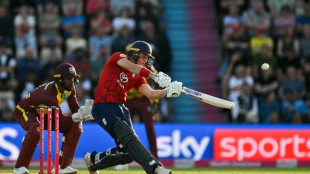
-
 Marc Marquez seeks elusive first win in Austria
Marc Marquez seeks elusive first win in Austria
-
Trump, Putin head for high-stakes Alaska summit

-
 Brazil court to rule from Sept 2 in Bolsonaro coup trial
Brazil court to rule from Sept 2 in Bolsonaro coup trial
-
Deadline looms to avert Air Canada strike

-
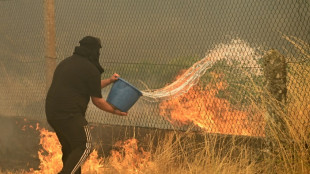 Spain on heat alert and 'very high to extreme' fire risk
Spain on heat alert and 'very high to extreme' fire risk
-
Taliban mark fourth year in power in Afghanistan
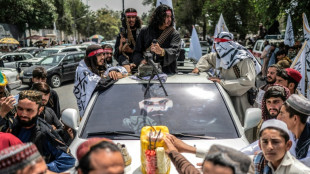
-
 Grand Slam Track won't happen in 2026 till athletes paid for 2025
Grand Slam Track won't happen in 2026 till athletes paid for 2025
-
Man City boss Guardiola wants to keep Tottenham target Savinho

-
 No Grand Slam Track in 2026 till athletes paid for 2025: Johnson
No Grand Slam Track in 2026 till athletes paid for 2025: Johnson
-
Macron decries antisemitic 'hatred' after memorial tree cut down
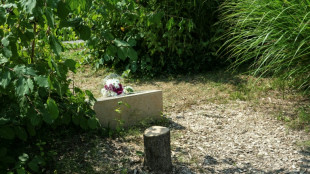
-
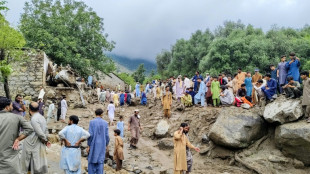 'Doomsday' monsoon rains lash Pakistan, killing almost 200 people
'Doomsday' monsoon rains lash Pakistan, killing almost 200 people
-
Arteta hits back at criticism of Arsenal captain Odegaard

-
 Leeds sign former Everton striker Calvert-Lewin
Leeds sign former Everton striker Calvert-Lewin
-
'Obsessed' Sesko will star for Man Utd says Amorim

-
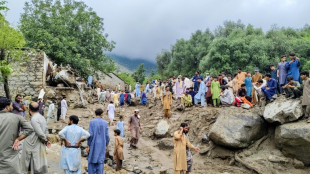 Deadly monsoon rains lash Pakistan, killing nearly 170
Deadly monsoon rains lash Pakistan, killing nearly 170
-
Lyles hints at hitting Olympic form before Thompson re-match
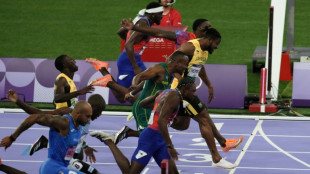
-
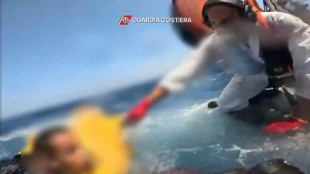 Italian authorities try to identify Lampedusa capsize victims
Italian authorities try to identify Lampedusa capsize victims
-
UK king, Starmer lead VJ Day tributes to WWII veterans, survivors

-
 South Korean president vows to build 'military trust' with North
South Korean president vows to build 'military trust' with North
-
Macron vows to punish antisemitic 'hatred' after memorial tree cut down
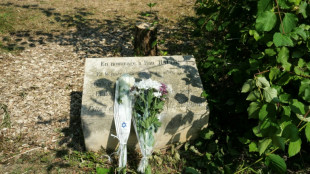
-
 Hodgkinson happy to be back on track ahead of Tokyo worlds
Hodgkinson happy to be back on track ahead of Tokyo worlds
-
Deadly monsoon rains lash Pakistan, killing dozens
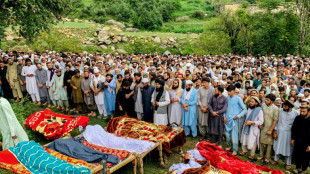
-
 Frank urges 'real' Spurs fans to back Tel after racist abuse
Frank urges 'real' Spurs fans to back Tel after racist abuse
-
Japan's emperor expresses 'deep remorse' 80 years after WWII


Shiny and deadly, unexploded munitions a threat to Gaza children
War has left Gaza littered with unexploded bombs that will take years to clear, with children drawn to metal casings maimed or even killed when they try to pick them up, a demining expert said.
Nicholas Orr, a former UK military deminer, told AFP after a mission to the war-battered Palestinian territory that "we're losing two people a day to UXO (unexploded ordnance) at the moment."
According to Orr, most of the casualties are children out of school desperate for something to do, searching through the rubble of bombed-out buildings sometimes for lack of better playthings.
"They're bored, they're running around, they find something curious, they play with it, and that's the end," he said.
Among the victims was 15-year-old Ahmed Azzam, who lost his leg to an explosive left in the rubble as he returned to his home in the southern city of Rafah after months of displacement.
"We were inspecting the remains of our home and there was a suspicious object in the rubble," Azzam told AFP.
"I didn't know it was explosive, but suddenly it detonated," he said, causing "severe wounds to both my legs, which led to the amputation of one of them."
He was one of hundreds of thousands of Palestinians returning home during a truce that brought short-lived calm to Gaza after more than 15 months of war, before Israel resumed its bombardment and military operations last month.
For Azzam and other children, the return was marred by the dangers of leftover explosives.
- 'Attractive to kids' -
Demining expert Orr, who was in Gaza for charity Handicap International, said that while no one is safe from the threat posed by unexploded munitions, children are especially vulnerable.
Some ordnance is like "gold to look at, so they're quite attractive to kids", he said.
"You pick that up and that detonates. That's you and your family gone, and the rest of your building."
Another common scenario involved people back from displacement, said Orr, giving an example of "a father of a family who's moved back to his home to reclaim his life, and finds that there's UXO in his garden".
"So he tries to help himself and help his family by moving the UXO, and there's an accident."
With fighting ongoing and humanitarian access limited, little data is available, but in January the UN Mine Action Service said that "between five and 10 percent" of weapons fired into Gaza failed to detonate.
It could take 14 years to make the coastal territory safe from unexploded bombs, the UN agency said.
Alexandra Saieh, head of advocacy for Save The Children, said unexploded ordnance is a common sight in the Gaza Strip, where her charity operates.
"When our teams go on field they see UXOs all the time. Gaza is littered with them," she said.
- 'Numbers game' -
For children who lose limbs from blasts, "the situation is catastrophic", said Saieh, because "child amputees require specialised long-term care... that's just not available in Gaza".
In early March, just before the ceasefire collapsed, Israel blocked all aid from entering Gaza. That included prosthetics that could have helped avoid long-term mobility loss, Saieh said.
Unexploded ordnance comes in various forms, Orr said. In Gaza's north, where ground battles raged for months, there are things like "mortars, grenades, and a lot of bullets".
In Rafah, where air strikes were more intense than ground combat, "it's artillery projectiles, it's airdrop projectiles", which can often weigh dozens of kilograms, he added.
Orr said he was unable to obtain permission to conduct bomb disposal in Gaza, as Israeli aerial surveillance could have mistaken him for a militant attempting to repurpose unexploded ordnance into weapons.
He also said that while awareness-raising could help Gazans manage the threat, the message doesn't always travel fast enough.
"People see each other moving it and think, 'Oh, they've done it, I can get away with it,'" Orr said, warning that it was difficult for a layperson to know which bombs might still explode, insisting it was not worth the risk.
"You're just playing against the odds, it's a numbers game."
X.Habash--SF-PST
